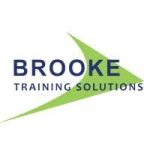
Freight brokers perform many important job duties that make them a critical part of many companies’ teams.
If you’re interested in this career path in Connecticut, it’s important to know what you have to do to stand out.
This information should get you started on your way in this field.
Table of Contents
Freight Broker Duties in Connecticut
As a freight broker, you’ll have many job duties, including:
- Working between two companies to handle shipping needs
- Tracking goods to ensure proper delivery
- Collecting and storing sales information
- Negotiating prices and quotes
- Providing customer support during the shipping process
- Making sure sales information is shared properly
- Communicating between goods providers and their clients
Licensing Requirements to Become a Freight Broker in Connecticut
To become a freight broker in Connecticut, you’ll need at least a high school diploma and broker authority licensing.
This licensing is handled by the U.S. Department of Transportation’s Federal Motor Carrier Safety Administration.
This group helps provide in-depth support for brokers and licenses you to handle the unique duties of this career.
This process includes:
- Providing a $75,000 surety bond before applying
- Showing adequate cargo and general liability coverage
- Paying a $300 licensing fee and a $50 filing fee
After completing this process, you’ll get an MC Number that lets you operate a freight broker business.
Typically, it takes 4-6 weeks to approve this process and receive your license.
Should you contact authorities regularly to see what’s taking so long?
No: They’ll typically provide a stock answer that is designed more to calm you down than provide real answers.
Note that a Certified Transportation Broker exam isn’t strictly necessary to get your license.
That said, you can obtain this certification through the Transportation Intermediaries Association or TIA, which costs $800 for first-time registration and $675 after that.
After completing the course and passing an exam, you receive certification. Why should you get certification? It can:
- Show your professionalism and build trust with your clients
- Teach you more about freight broker work in Connecticut
- Help you feel more comfortable doing your duties
- Improve your reviews and ratings online
Freight Broker Training Programs
Connecticut provides one training program for freight brokers that can help you transition into this career.
If you’re interested in learning beyond that school, there are also online options outside of the state that may be more interesting to you.
Here are a few options to consider.
CT State Community College 
CT State Community College provides an online freight broker training program that immerses you in this field and helps prepare you for its unique challenges.
There are no prerequisites, and you can take the course 100% online.
It typically takes about six months to complete if you approach it full-time, meaning you can get up and going quickly and efficiently.
Brooke Training Solutions 
Most freight broker training is done online, such as with Brooke Training Solutions.
While they don’t have a Connecticut location, they do have an online school that you can utilize to learn this skill.
You get the same type of training you would with the in-person class but in a lower-cost environment.
Try this choice if you want to work with a trusted freight broker training team.
Freight Movers School 
Though located in Texas, Freight Movers School has online training options that may appeal to you.
These courses immerse you in freight broker skills and teach you important duties, such as preparing freight, providing updates, tracking loads, and negotiating prices.
You’ll also learn how to generate sales leads and improve your potential profits.
Freight Broker Schools in Connecticut – Summary Table
| School Name | Address |
|---|---|
| CT State Community College | |
| Brooke Training Solutions | 120, 5005, 5005 Colleyville Blvd #120, Colleyville, TX 76034, United States |
| Freight Movers School |
Salary for Freight Brokers in Connecticut
Pay for a freight broker in Connecticut will vary heavily based on multiple factors.
The highest pay reported in this state was about $40,190, which could also go higher depending on bonuses and other pay increases.
The median is about $37,867, which could also be higher if you perform your duties better.
It’s important to stay busy in this career to improve your wages.
Annual Salary Range:| Location | Avg. Annual Salary |
|---|---|
| Bridgeport | $54,459 |
| New Haven | $51,952 |
| Hartford | $51,909 |
| Stamford | $55,167 |
| Waterbury | $51,679 |
| Norwalk | $55,167 |
| Danbury | $53,221 |
| New Britain | $51,775 |
| West Hartford | $51,909 |
| Greenwich | $55,167 |
Regional Salary in Connecticut
| Region | Employed | Avg. Annual Salary | Avg. Hourly Pay | Top 10% Annual Salary | Bottom 10% Annual Salary |
|---|---|---|---|---|---|
| Bridgeport-Stamford-Norwalk, CT | 170 | - NA - | - NA - | - NA - | - NA - |
| Hartford-West Hartford-East Hartford, CT | ** | $84,430 | $40.59 | $197,440 | $37,660 |
* Employment conditions in your area may vary.
Frequently Asked Questions
Is This a Good Salary for Connecticut?
The average salary for Connecticut residents is $79,000, which is well over the pay you get working as a freight broker.
But keep this in mind: your training is far less extensive, and you typically can jump right into this job out of high school with minimal experience.
Do You Have to Pay to Keep Your License?
You need to pay $300 to pay your DOT Authority Application fee when getting your license.
After that, you pay a smaller fee to keep your license up to date.
This fee will vary based on changing monetary values, inflation, and other factors.
What Other Expenses Do You Need to Pay?
As a freight broker, you’ll pay for insurance (around $1,500-3,000) as wella s process agent fees (between $50-150), as well as $1,800-10,000 for your surety bond.
Thankfully, these costs are much lower than what you can make as a freight broker, as long as you’re careful with diversifying your clients.
Freight Broker Info by State
- Alabama
- Alaska
- Arizona
- Arkansas
- California
- Colorado
- Connecticut
- Delaware
- Florida
- Georgia
- Hawaii
- Idaho
- Illinois
- Indiana
- Iowa
- Kansas
- Kentucky
- Louisiana
- Maine
- Maryland
- Massachusetts
- Michigan
- Minnesota
- Mississippi
- Missouri
- Montana
- Nebraska
- Nevada
- New Hampshire
- New Jersey
- New Mexico
- New York
- North Carolina
- North Dakota
- Ohio
- Oklahoma
- Oregon
- Pennsylvania
- Rhode Island
- South Carolina
- South Dakota
- Tennessee
- Texas
- Utah
- Vermont
- Virginia
- Washington
- West Virginia
- Wisconsin
- Wyoming









